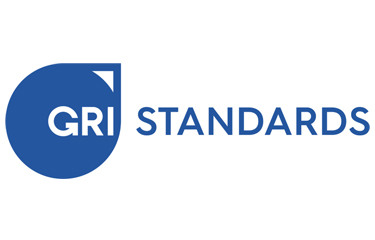Corporate responsibility has evolved to become a critical tool for sustainable business and organizations worldwide are turning to the Global Reporting Initiative (GRI) as a guiding force.
Founded in 1997, the Global Reporting Initiative set out to revolutionize the way businesses communicate their impact on the world. What started as a framework for environmental reporting has now grown into a comprehensive set of standards covering environmental, social, and governance (ESG) aspects. As companies increasingly recognize the interconnectedness of economic, social, and environmental factors, GRI reporting has emerged as a guide for holistic corporate disclosure.
One of the primary ways GRI reporting is shaping modern business practices is through enhanced transparency. In a world where information is readily accessible, consumers, investors, and other stakeholders demand greater openness from corporations. GRI reporting goes beyond financial metrics, offering a comprehensive view of a company’s impact on the environment, society, and its governance structures.
GRI reporting compels businesses to assess and communicate their sustainability efforts, not just as a means of compliance but as a driver of innovation and resilience.Through GRI reporting, companies outline their environmental impact, energy usage, and emissions. This data not only fulfills reporting requirements but also serves as a roadmap for organizations to set meaningful sustainability goals. By publicly disclosing their environmental initiatives, businesses can inspire industry-wide change and contribute to the global effort to combat climate change.
Social sustainability is equally emphasized in GRI reporting, pushing companies to address issues such as labor practices, human rights, and community engagement. This holistic approach to sustainability ensures that businesses consider their entire value chain, from supply chain ethics to product end-of-life considerations.
Modern businesses operate in an era of heightened connectivity. The digital age has given stakeholders unprecedented access to information, enabling them to scrutinize corporate practices and demand accountability. GRI reporting facilitates meaningful stakeholder engagement by providing a structured framework for communication.Stakeholders, ranging from employees and customers to investors and local communities, can access GRI reports to understand a company’s values, objectives, and impact. This transparency not only satisfies the information hunger of stakeholders but also invites their feedback and participation in a company’s sustainability journey.
Investors are increasingly factoring ESG considerations into their decision-making processes. GRI reporting, by providing a standardized approach to disclosing ESG data, equips investors with the information they need to assess the long-term sustainability of an investment.Studies have shown that companies with strong ESG performance tend to exhibit robust financial performance over time. GRI reporting, by showcasing a company’s commitment to environmental and social responsibility, can attract a growing pool of responsible investors who prioritize sustainable and ethical business practices.
GRI reporting functions on a global stage, establishing consistent standards for businesses regardless of their industry or geographic location. This standardization serves a dual purpose: it not only guarantees uniformity in reporting but also nurtures a collective dedication to global sustainability objectives.
However, the impact of GRI reporting extends deeply into local contexts. By urging businesses to take into account their distinct environmental and social landscapes, GRI reporting recognizes that sustainability cannot be approached with a one-size-fits-all mindset. While companies adhere to global standards, they are also motivated to address the specific challenges and opportunities unique to their local communities. This makes GRI reporting exceptionally versatile and flexible, positioning it as a reporting framework that accommodates the nuances of diverse business environments.
The Future of GRI Reporting
As we look to the future, the role of GRI reporting in shaping modern business practices is poised to become even more significant. The push for increased transparency, the growing emphasis on sustainability, and the demand for ethical corporate behavior are trends that show no signs of diminishing. As companies continue to navigate the complexities of the modern business landscape, GRI reporting stands as a guiding force, fostering a new era of conscientious, accountable, and sustainable business practices.
As businesses increasingly integrate sustainability into their core operations, the demand for professionals with GRI certification is on the rise. In a competitive job market, GRI certification sets you apart from the crowd. It demonstrates your commitment to staying ahead of industry trends and positions you as a candidate who brings a unique skill set to the table. Obtaining GRI certification is not just a response to a current trend; It’s an investment in a future where sustainability, transparency, and ethical conduct are non-negotiable principles of success.
Impact Africa Consulting Ltd, a leading sustainability firm based in Kenya is leading the way in sustainability action by offering a GRI training program.Ready to Shape the Future? Take the Next Step – Register for this GRI Training Program Today!
https://www.impactingafrica.com/gri-trainer-in-africa/



